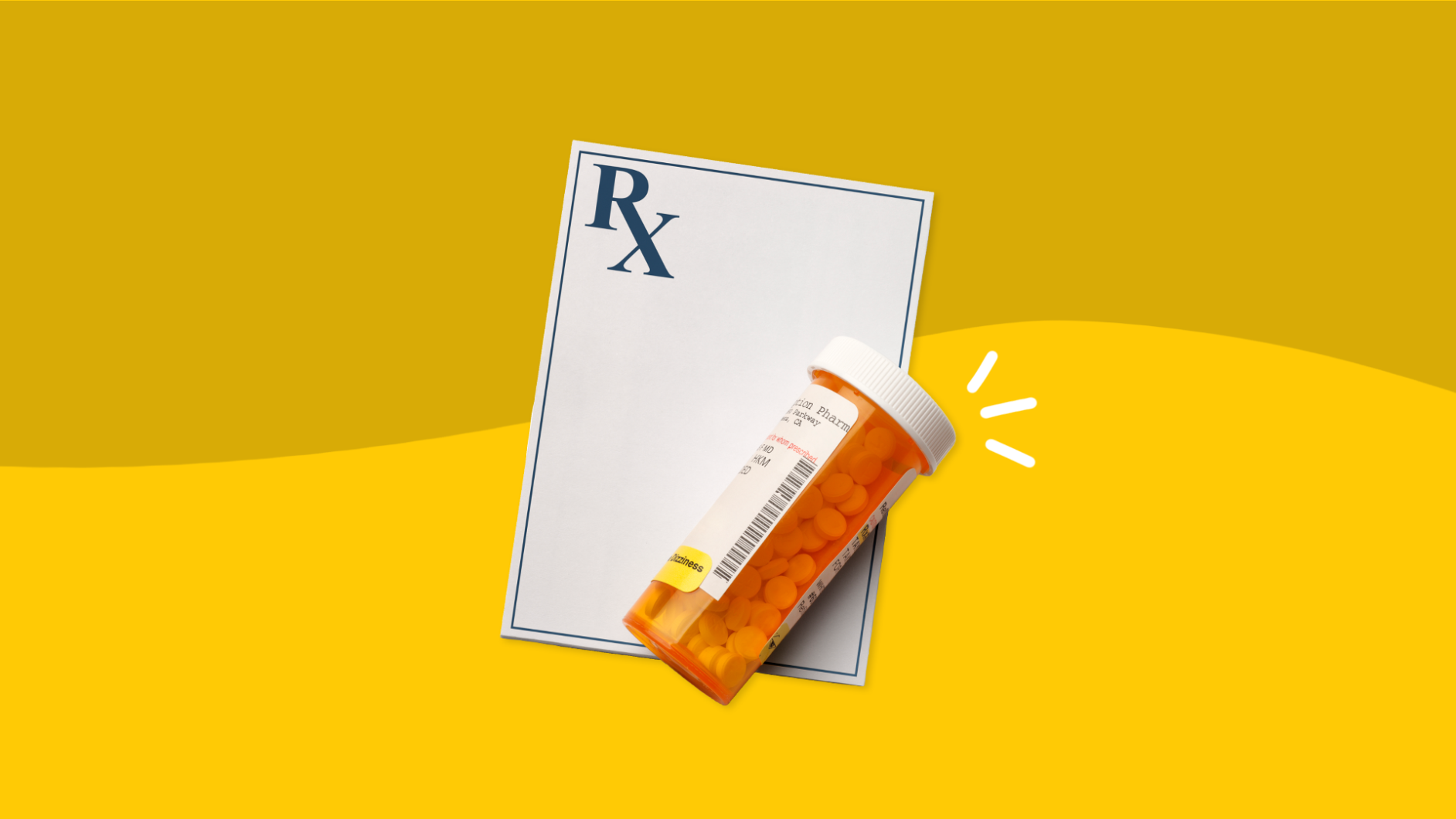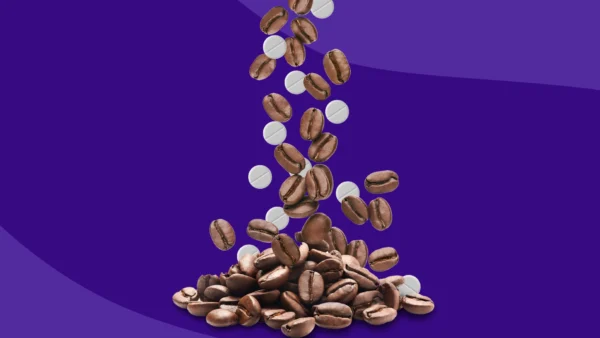Latuda side effects | Weight gain | Withdrawal | How long do side effects last? | Warnings | Interactions | How to avoid side effects
Latuda (active ingredient: lurasidone hydrochloride) is a brand-name atypical antipsychotic approved to treat schizophrenia in adolescents and adults and to treat depression in adults and children 10 or older diagnosed with bipolar disorder. It can also be combined with lithium or valproate to treat bipolar depression in adults. Lurasidone, the active ingredient in Latuda, affects the activity of dopamine and serotonin, chemicals that help pass signals between nerves. Like all medications that alter the chemistry of the brain, Latuda may produce side effects, worsen some medical conditions, and interact with other medications.
RELATED: Learn more about Latuda | Get Latuda discounts
Common side effects of Latuda
Like all medications, Latuda may cause minor or temporary side effects. More than 1 in 20 people will experience side effects such as sleepiness, nausea, agitated restlessness, stomach upset, or involuntary movements.
In patients taking Latuda, the most common side effects reported are:
- Nausea
- Akathisia (an irresistible urge to move)
- Extrapyramidal symptoms (tremor, shaking, involuntary movements, drooling)
- Difficulty moving or slow movements
- Sleepiness
- Drowsiness
- Insomnia
- Dry mouth
- Diarrhea
- Stomach upset
- Vomiting
- Anxiety
- Agitation
- Nasal congestion
- Blurred vision
Many side effects are dose-proportional—the higher the dose, the greater the risk and severity of minor side effects. Seek medical advice if you experience any minor side effects when taking Latuda.
Serious side effects of Latuda
All antipsychotic medications can cause serious and long-term side effects. Severe Latuda side effects include:
- Metabolic changes resulting in elevated blood sugar, elevated triglycerides, elevated cholesterol, low blood sodium, or diabetes
- Hyperthermia
- Excess prolactin
- Decrease in white blood cells
- Trouble swallowing
- Neuroleptic malignant syndrome
- Tardive dyskinesia
- Mania
- Suicidal thoughts and behaviors
- Seizures
- Stroke
- Death
Like other antipsychotic medications, Latuda may result in metabolic changes and weight gain, though this is less likely and less pronounced than with similar medications. Latuda may not be the right medication for people with a family history of diabetes or metabolic syndrome.
All antipsychotic medications interfere with the body’s ability to regulate body temperature. As a result, people taking Latuda are at an increased risk of heatstroke (hyperthermia), a potentially life-threatening medical condition. Caution must be taken to avoid hot weather or overexertion when taking Latuda.
Latuda increases the risk of suicidal thoughts and behaviors in children, adolescents, and young adults being treated for bipolar depression. When giving Latuda for depression, it is important to watch for signs of suicidality including:
- Suicidal ideation or comments
- Attempts at suicide
- Mood changes
- Anger, irritability, or aggression
- Worsening depression
- Worsening anxiety
- Panic attacks
- Risk-taking behavior
Other serious side effects and complications from Latuda and overuse of antipsychotic drugs include:
- Hyperprolactinemia
- Orthostatic hypotension
- Dysphagia
- Neuroleptic malignant syndrome
- Tardive dyskinesia
Many antipsychotic medications lower the “seizure threshold,” putting patients at an increased risk for seizures due to other causes. In clinical trials, patients taking Latuda had a very low rate of seizures, making Latuda a low-risk drug for inducing seizures. However, the manufacturer, Sunovion Pharmaceuticals Inc., advises that Latuda be used with caution in patients with a history of seizures.
Finally, Latuda raises the risk of stroke and death in patients over the age of 65 with dementia-related psychosis. For this reason, Latuda is not approved to treat dementia-related psychosis.
Latuda weight gain
Antipsychotic medications typically cause metabolic changes and weight gain as unwanted side effects, but the extent of weight gain varies by drug. However, according to the same clinical trial listed above, Latuda scores on the low end, causing an average weight gain of about one pound in the short-term and about two pounds in the long-term (one year). Around 4.8% of patients in this trial gained more than 7% of body weight versus about 3.3% who were taking a placebo.
What all this means is that the risk of weight gain when taking Latuda is lower than it is with other antipsychotics. This is due to Latuda’s weak effects on certain types of nerve receptors that other antipsychotic medications do interact with. As a result, side effects such as weight gain, tremor, and orthostatic hypotension are less common and less severe than with other antipsychotic drugs. However, the manufacturer advises that weight be monitored carefully when taking Latuda.
Latuda withdrawal
There are no studies or clinical trials focusing on withdrawal symptoms of Latuda, though there are reports of Latuda withdrawal. Neither the manufacturer nor the Physician’s Desk Reference specify withdrawal as a side effect or recommend a tapered dosing regimen when discontinuing Latuda.
However, antipsychotic drugs that work in the same way as Latuda, called dopamine antagonists, can cause withdrawal symptoms when discontinued, but not all patients will experience withdrawal effects when discontinuing atypical antipsychotics. Those that do may experience mild or severe withdrawal symptoms. Nonetheless, the American Psychiatric Association recommends reducing the dose by 10% each month when discontinuing antipsychotic medications to reduce the risk of withdrawal or symptom rebound.
The most common withdrawal symptom when discontinuing antipsychotics is symptom rebound. If the patient has been symptom-free for some time, the return of symptoms can seem worse than before treatment. Other symptoms of antipsychotic withdrawal include involuntary movements, twitching, slow movements, compulsion to move, nausea, vomiting, diarrhea, and stomach pain. A healthcare provider may prescribe Parkinson’s medications to alleviate antipsychotic withdrawal.
How long do Latuda side effects last?
Side effects may last as long as Latuda is being taken, but some minor side effects may decrease over time. After long-term treatment, Latuda will take about two to four days to completely clear from the body. Most minor and some serious side effects will begin to resolve about that time. Unfortunately, some serious side effects may take longer to resolve and others, such as tardive dyskinesia, may be irreversible.
Latuda contraindications & warnings
Latuda comes with an FDA black-box warning that it is not to be used to treat dementia-related psychosis because of the risk of death or stroke. Latuda should also not be taken by:
- People who are allergic to lurasidone or any of its inactive ingredients
- People taking drugs or substances that will strongly interfere with the body’s metabolism of lurasidone
Other warnings include:
- Neuroleptic malignant syndrome
- Tardive dyskinesia
- Low white blood cell counts
- Orthostatic hypotension
- Suicidal thoughts or behaviors
- Elevated blood sugar, fats, or cholesterol
Children
Latuda treats adolescents 13 and older for schizophrenia and children and adolescents older than 10 for bipolar depression. The safety of Latuda has not been studied in children younger than 10.
When used to treat bipolar depression, Latuda significantly raises the risk of suicidal thoughts and behaviors in children and adolescents. Children and young patients should be monitored for worsening depression or signs of suicidality.
Pregnancy and breastfeeding
There are no safety studies of the use of Latuda in pregnant women or nursing mothers. There is anecdotal evidence of newborns who have movement disorders and withdrawal symptoms when antipsychotics are taken in the third trimester of pregnancy. Latuda may be secreted in breast milk, but the exact amounts have not been determined. As with any antipsychotic medication, women should discuss the pros and cons of taking Latuda while pregnant or nursing.
Seniors
The safety of Latuda in people over the age of 65 has not been thoroughly studied and the prescribing information does caution in prescribing in the elderly (age 65 and older). Therefore, the choice to prescribe this medication in those age 65 and older, with a diagnosis of schizophrenia or bipolar depression, is made on a case-by-case basis in consultation with a healthcare provider. Latuda does raise the risk of stroke and death in elderly patients with dementia-related psychosis, so Latuda is not approved for those patients.
Latuda interactions
For drugs like Latuda, drug interactions are complex and confusing. To simplify Latuda interactions, other drugs should not be taken or taken with caution because they can:
- Interfere with the body’s ability to break down lurasidone, the active ingredient in Latuda or
- Worsen side effects
CYP3A4 inducers and inhibitors
Latuda is prohibited from use with medications that are strong CYP3A4 inducers and inhibitors. Put simply, these drugs either speed up the breakdown of lurasidone by the body (CYP3A4 inducers) or prevent and slow down the breakdown of lurasidone (CYP3A4 inhibitors).
Drugs that strongly accelerate the breakdown of lurasidone will significantly decrease its effectiveness. These include:
- St John’s wort
- Antibiotics: rifampin, rifaximin, and rifamycin
- Certain types of anticonvulsants: carbamazepine, phenytoin, primidone, and fosphenytoin
- Barbiturates: pentobarbital and phenobarbital
- Dexamethasone, Lysodren (mitotane), Xtandi (enzalutamide), Erleada (apalutamide), Orkambi (lumacaftor), and Rydapt (midostaurin)
Drugs that only moderately or weakly speed up the breakdown of lurasidone can be taken, but doctors may need to modify therapy or dose amounts.
Drugs and foods that slow down the body’s metabolism of lurasidone, however, increase the concentration of Latuda in the blood and so increase the risk of side effects. The strongest inhibitors that should never be taken with Latuda include:
- Grapefruit, curcumin, and goldenseal
- Certain types of antibiotics: clarithromycin, erythromycin, troleandomycin, and telithromycin
- Antifungal (azole) drugs: econazole, ketoconazole, voriconazole, methimazole, and posaconazole
- Blood pressure medications: diltiazem and verapamil
- Certain types of antiviral medications: ritonavir, atazanavir, darunavir, lopinavir, efavirenz, tipranavir, Incivek (telaprevir), Invirase (saquinavir), Rescriptor (delavirdine), Crixivan (indinavir), Vitekta (elvitegravir), Victrelis (boceprevir), and Viracept (nelfinavir)
- Certain types of immune system modulating anticancer drugs such as Tasigna (nilotinib), Kisqali (ribociclib) Zydelig (idelalisib), and Rydapt (midostaurin)
- Ergotamine, terfenadine, nefazodone, loperamide, cobicistat, Vaprisol (conivaptan), Diacomit (stiripentol), naloxone, danazol, and lonafarnib
Grapefruit has substances that are also CYP3A4 inhibitors. However, these substances don’t interfere with the body’s ability to metabolize lurasidone in the body, but rather block the same process in the intestines. This means that the body absorbs more lurasidone than it normally would, increasing the risk of side effects. The effects of grapefruit on the intestinal cells can last as long as 24 hours, so grapefruit should be completely avoided while taking Latuda.
Depressants
Latuda is a central nervous system depressant. It slows down the brain. These effects will be enhanced if Latuda is taken with other central nervous system depressants. The effects may be physically hazardous. If they aren’t, tiredness and loss of motor control can increase the risk of accident or injury. When taking Latuda, other CNS depressants should be avoided or used cautiously including:
- Alcohol, marijuana, cannabinoids, ginseng, or Gotu kola
- Antihistamines such as Benadryl (diphenhydramine), doxylamine, and pheniramine
- Narcotics such as codeine, morphine, or tramadol
- Sedatives (sleep aids) such as midazolam or estazolam
- Anxiety medications such as buspirone or diazepam
- Nerve pain drugs such as gabapentin, gabapentin enacarbil, or pregabalin
- Anti-nausea drugs such as metoclopramide or ondansetron
- Anticonvulsants such as carbamazepine (contraindicated), phenytoin, lamotrigine, or levetiracetam
Not all of these drugs are to be avoided outright, but they all should be taken with great caution and in consultation with a physician or other healthcare provider. Avoid driving, operating machinery, or engaging in risky activities when combining two or more CNS depressants.
Seizures
Seizures are the uncontrolled, random, and repetitive firing of nerve circuits in the brain. They can range from barely noticeable mental slips to full-body convulsions. In clinical studies, seizures were a side effect of Latuda at the same rate they were for a placebo, making Latuda a comparatively safe antipsychotic medication. Still, Latuda and all other antipsychotic medications lower the seizure threshold, putting patients at a higher risk of seizures. For this reason, healthcare providers will avoid combining Latuda with medications that may cause seizures including Firdapse (amifampridine), Wellbutrin (bupropion), and certain types of drugs used for X-rays or other imaging.
Latuda can interact with other medications and conditions such as:
- Parkinson’s medications
- Hyperglycemia
- Heatstroke
How to avoid Latuda side effects
Antipsychotics such as Latuda commonly cause side effects. Sometimes, these side effects lead patients to stop taking the drug. Keep in mind that all antipsychotic drugs are a trade-off between their often considerable benefits and their sometimes equally considerable adverse effects.
Follow these tips when taking Latuda to minimize the risk of Latuda side effects while ensuring the greatest benefit from taking the drug:
1. Take Latuda as directed
Take the daily dose as prescribed. Don’t increase or decrease the dose. Above all, don’t take a one- or two-day “holiday” from the drug. It must be taken daily over the long-term to realize its full benefits. If the medicine does not seem to be working or side effects are too difficult to handle, talk to the prescribing provider about changing the dose or switching to a new medication.
2. Take Latuda with food
Latuda should be taken with food. In fact, it should be taken with a meal of at least 350 calories. While this may not prevent side effects, it does ensure realizing the maximum benefits from taking the drug.
3. Tell your healthcare provider about all your medical conditions and medications
Because of the risk of side effects, you should tell your healthcare provider about:
- Any physical conditions you may have, particularly
- High blood sugar, diabetes, or metabolic syndrome
- Low white blood cell count
- A history of seizures or epilepsy
- Thyroid problems
- A history of high prolactin levels
- Parkinson’s disease or symptoms
- Heart problems
- Liver problems
- Any alcohol use, recreational drug use, or history of substance abuse
- All medications you are currently taking
- All over-the-counter medications and supplements you typically take
Always talk to your healthcare provider about any side effects experienced when taking Latuda or any other prescription medication.
4. Avoid alcohol, antihistamines, and depressants
Any substance that slows down the brain such as alcohol, marijuana, antihistamines, and sedatives will worsen the sedative and cognitive impairment effects of Latuda, raising the risk of accidents or injury. When taking Latuda, do not drive, operate machinery, or engage in risky activities until you are aware of how the drug is affecting you. It is also a good idea when taking CNS depressants such as Latuda to remove obstacles and hazards from around the house to reduce the risk of accidental injury.
5. Do not eat grapefruit or drink grapefruit juice
Grapefruit and grapefruit juice are prohibited when taking Latuda. Grapefruit has substances that increase the amount of lurasidone absorbed by the body, increasing the risk and severity of Latuda side effects. Other drugs and substances may also increase the concentration of Latuda in the body, so make sure to discuss with the prescribing provider all the medications, supplements, and herbal remedies that are being taken.
6. Avoid overheating
Latuda and other antipsychotic medications interfere with the body’s ability to regulate temperature, making overheating a potential risk. Avoid overheating or dehydrating by:
- Staying indoors during hot weather
- Avoiding overexertion or over-exercise
- Avoiding being in the sun for extended periods
- Drinking plenty of water
- Avoid alcohol—it, too, interferes with the body’s ability to regulate body temperature
Resources:
-
- Latuda, Epocrates
- Lurasidone, StatPearls
- Lurasidone compound summary, National Library of Medicine
- Lurasidone hydrochloride, PDR
- Acute and persistent withdrawal symptoms following discontinuation of psychotropic medications, Psychotherapy and Psychosomatics
- Antipsychotic-associated weight gain: management strategies and impact on treatment adherence, Neuropsychiatric Disease and Treatment
- Biochemistry, Cytochrome P450, StatPearls
- Drug-induced glucose alterations part 2: drug-induced hyperglycemia, Diabetes Spectrum
- Medication-induced hyperprolactinemia, Mayo Clinic
- Medicinal importance of grapefruit juice and its interactions with various drugs, Nutrition Journal
- Practice Guideline for the Treatment of Schizophrenia, American Psychiatric Association
- Tardive dyskinesia, StatPearls











